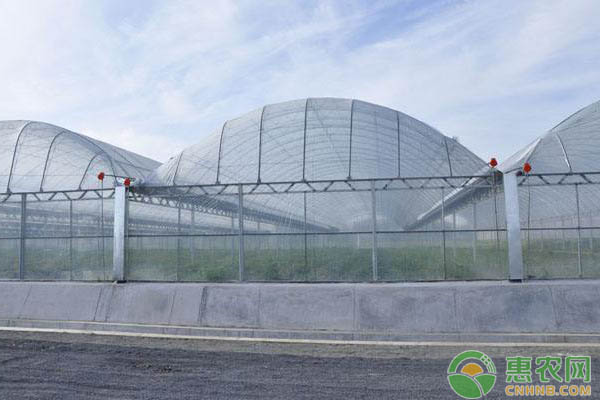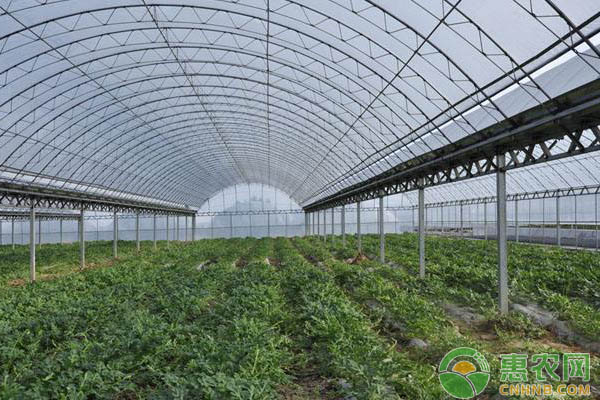Recently, weak cold air has affected the north in a wide range, and this winter has already arrived. After entering the winter, you will encounter cold currents, rain and snow. In this case, it is also a period of complicated management of greenhouses. Farmers should strengthen management to avoid losses caused by extreme weather! Do a good job of warming and warming the greenhouse 1. Reasonably adjust the cover open time. It can be opened and closed at night, and after 9:00 in the morning, open the grass or heat insulation, and cover it at 3 pm. 2. Wipe the shed film to increase the light transmission and increase the temperature inside the shed. On cloudy days, we must also uncover the cover. See the scattered light for 3-6 hours, let the vegetables in the shed see the light for a short time, maintain the life activities of the plants, and even fill the light with the fill light in the rainy and snowy days to make up for the lack of light on the vegetables. Adverse effects, 12-14 hours a day. 3. Increase the cover and strengthen the insulation. The grasshopper or heat preservation is covered with a film on the outside. The front of the shed is covered with a layer of cold-proof skirt. The front of the shed is covered with a cold film. The back wall is covered with a reflective film. The curtain door is hung with a cotton curtain. The imported film keeps the cold wind from entering. Inside the shed. 4. Warm up at the right time. During the daytime, the temperature in the shed is less than 15 degrees and the furnace is used for heating. Maintain 15-18 degrees at noon, stop heating at 20 degrees, and then warm up to 20 degrees when the temperature drops to 12 degrees in the afternoon, to ensure that the next morning shed temperature is about 10 degrees, which can make vegetables grow slowly. Tips: By covering the mulch, cover the peanut shell, rice husk, wheat straw, etc., reduce water evaporation and heat loss, and maintain the ground temperature. 5. Spray biostimulant to improve the cold resistance of vegetables. Spray Albit, potassium dihydrogen phosphate, brown sugar to improve the cold resistance of vegetables and prevent freezing damage. Practice: add one bag of Albit, one or two potassium dihydrogen phosphate and two or two brown sugar. 6. Control the watering in cold weather or rainy and snowy days, and reduce the humidity and soil moisture in the shed. Release the wind at noon for a short time to remove moisture and toxic gases from the shed. 7. Remediation measures for freezing damage. Appropriate shading and slowly warming up. After the vegetables are frozen, the temperature in the shed should rise slowly, so that the frozen tissue gradually absorbs the water lost by the frozen vegetables. After being frozen, the vegetables cannot be directly exposed to strong light, and it is easy to cause tissue loss, wilting, shrinking, and even death. In the production, we should take the method of pulling the flower buds, pull the grass rafts apart one by one, and roll them up with the roller blind machine. You can also set the cloak in the shed to reduce the intensity of sunlight and slowly heat up. Reasonable topdressing, promote growth Practice: The frozen vegetables should be reasonably applied to the quick-acting nitrogen fertilizer to promote the recovery of growth, and 10 kg of balanced water-soluble fertilizer should be applied in the mu, and the chitin liquid fertilizer with rooting can also be used for foliar topdressing, spraying 1% aqueous urea solution or 2% aqueous potassium dihydrogen phosphate solution. Artificial water spray Spraying warm water with a sprayer can increase the humidity of the air in the shed and promote the rejuvenation of the frozen tissue. Remove dead leaves and prevent diseases The frozen branches and leaves are cut off in time and taken out of the shed. After the vegetables are frozen, they are susceptible to infection. It is necessary to spray protective fungicides in time. In fact, in the face of cold weather, all farmers should not panic, as long as the above details are done, it is not a problem to resist the cold weather! X-RAY ZHEJIANG FOMOS MEDICAL TECHNOLOGY CO.,LTD. , https://www.ifomos.com

How do greenhouses protect against cold currents and cold weather? Experts give you advice
Next Article
DC motor removal steps
Prev Article
How to control sclerotinia sclerotiorum